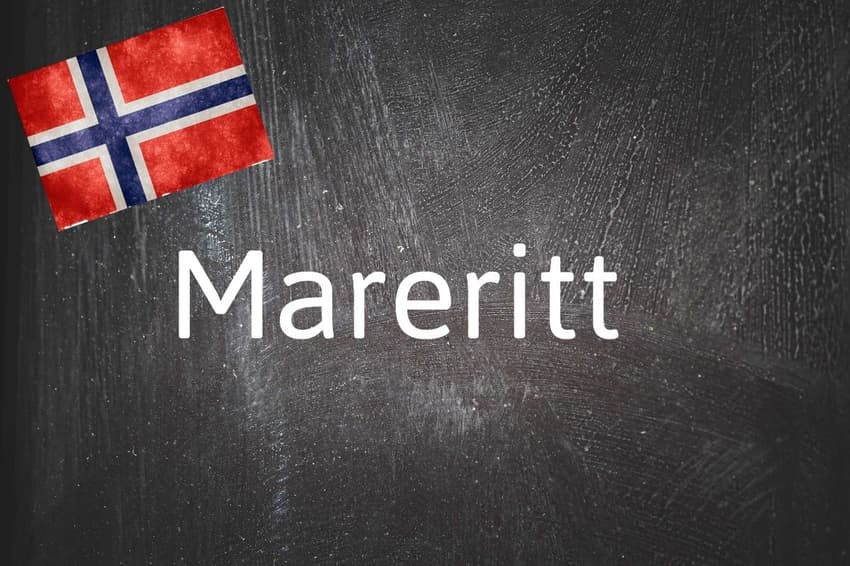Norwegian word of the day: Mareritt

Here's a word of the day closely related to its English equivalent but whose history you might not have guessed.
What is mareitt?
Mareitt means 'nightmare', and as in English, it can be used to describe both a bad dream and a highly negative experience or a marerittscenario (nightmare scenario).
Unlike the English word, it does not contain the component 'dream', drøm in Norwegian. The first part of the word, mare, should be familiar to English speakers, though.
As to this first part of the word, the old Norse word mara was used to refer to a spirit or demon, usually believed to be female, which people thought was responsible for causing bad dreams. These spirits were written about in stories dating back to the 13th century; in one Old Norse tale, a witch helps a wife to conjure a nightmare as a punishment for the husband who abandoned her.
According to these tales, the mare would lie on sleeping people's chests, tormenting them with upsetting dreams and messing up the sleeper's hair.
Why do I need to know mareitt?
Drøm means 'dream', and Norwegian has the verb å drømme (to dream). This is a word that's existed in the Nordic languages for centuries and, before that, in Old Norse as draumr. It's also related to its equivalents in English (dream), German (der Traum) and many other languages.
While the Swedish word for nightmare, mardröm, uses the modern word for dream, in Norwegian, its ritt, not drøm, which forms the second part of this world.
Ritt is a noun related to the German verb reiten, meaning 'to ride', bringing us back to the mythology closely associated with mareritt.
Examples
Mamma, jeg har hatt et mareritt
Mum, I had a nightmare
Turen ble til et sant mareritt.
The journey turned into a real nightmare.
Comments
See Also
What is mareitt?
Mareitt means 'nightmare', and as in English, it can be used to describe both a bad dream and a highly negative experience or a marerittscenario (nightmare scenario).
Unlike the English word, it does not contain the component 'dream', drøm in Norwegian. The first part of the word, mare, should be familiar to English speakers, though.
As to this first part of the word, the old Norse word mara was used to refer to a spirit or demon, usually believed to be female, which people thought was responsible for causing bad dreams. These spirits were written about in stories dating back to the 13th century; in one Old Norse tale, a witch helps a wife to conjure a nightmare as a punishment for the husband who abandoned her.
According to these tales, the mare would lie on sleeping people's chests, tormenting them with upsetting dreams and messing up the sleeper's hair.
Why do I need to know mareitt?
Drøm means 'dream', and Norwegian has the verb å drømme (to dream). This is a word that's existed in the Nordic languages for centuries and, before that, in Old Norse as draumr. It's also related to its equivalents in English (dream), German (der Traum) and many other languages.
While the Swedish word for nightmare, mardröm, uses the modern word for dream, in Norwegian, its ritt, not drøm, which forms the second part of this world.
Ritt is a noun related to the German verb reiten, meaning 'to ride', bringing us back to the mythology closely associated with mareritt.
Examples
Mamma, jeg har hatt et mareritt
Mum, I had a nightmare
Turen ble til et sant mareritt.
The journey turned into a real nightmare.
Join the conversation in our comments section below. Share your own views and experience and if you have a question or suggestion for our journalists then email us at [email protected].
Please keep comments civil, constructive and on topic – and make sure to read our terms of use before getting involved.
Please log in here to leave a comment.